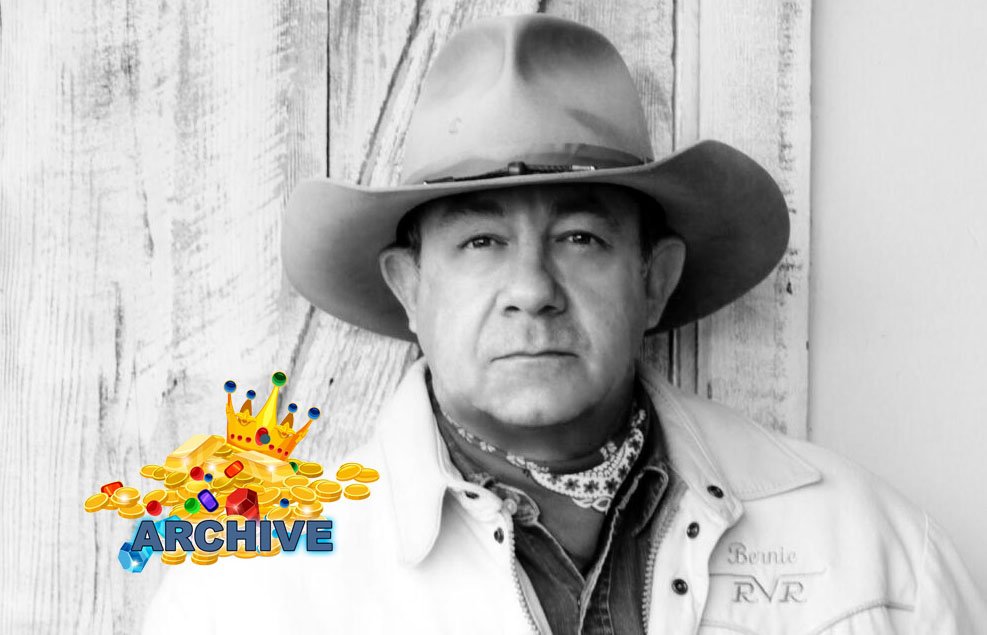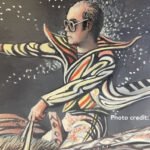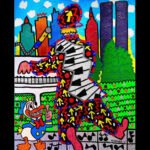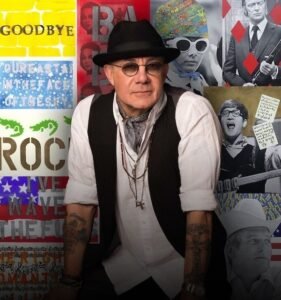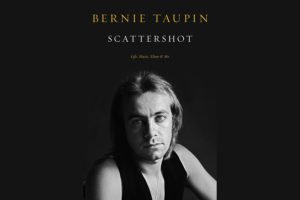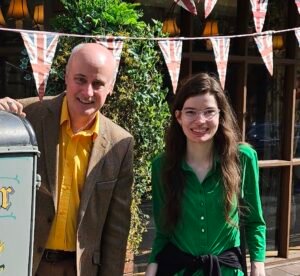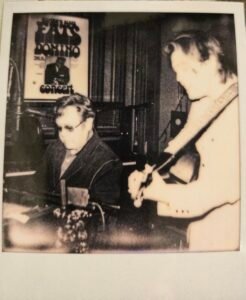Rope Around a Horse
Originally Posted by George Matlock
Farmdog Bernie Taupin talks to Daily Telegraph
Monday 4 November 2002
From Daily Telegraph, November 2, 2002
The latest Archive of the Month is about Elton’s longtime friend and writing partner.
Bernie Taupin explains his affinity with cowboys and how he and Elton bond over music. When Elton talks about his parties, though, Bernie is far less enthusiastic. On the other hand, when Bernie brings up horses, he doesn’t receive much of a response!
 As I get in the lift at the Beverly Hills apartment of half of one of the most successful duos in music history, a crackled voice through the intercom tells me to forget the numbered floors and just push “P”.
As I get in the lift at the Beverly Hills apartment of half of one of the most successful duos in music history, a crackled voice through the intercom tells me to forget the numbered floors and just push “P”.
“P?” I ask.
“Yes – ‘P’ for penthouse.”
This would seem to be an appropriate setting for the everyday life of lyricist Bernie Taupin, who for 30 years has been the name credited on almost every hit to which Elton John has written those infuriatingly catchy melodies.
Taupin grew up on a small farm in the Fenlands of Lincolnshire. In the early years of his partnership with Elton John, they were so poor that they lived on fish fingers and Instant Whip and shared a bunk-bed at Elton’s mother’s house in Middlesex.
Nowadays, however, Taupin is worth an estimated £50 million (Editor’s note: in 2002). On Monday in London, at a dinner thrown in their honour by the Music Industry Trust, the two men will be presented with a lifetime achievement award by actor Kevin Spacey.
While Elton’s flamboyant lifestyle ensures that rarely a week goes by in which he does not appear in the tabloids, most of us would not recognise Taupin if we passed him in the street.
Certainly he has given few newspaper interviews to provide clues about the person behind the music. But the idea of meeting a pop writer in a penthouse conjured up the expectation of a fraught hour with a prima donna.
So when the doors of the lift opened into the luxurious apartment, its ceiling and floors gleaming with polished beams, skylights filling the room with California sunlight, the last thing I expected was to be greeted by a man who sees himself not as the last of the international playboys but the heir to the legacy of stripped-down, Wild West living.
He may be only a little over 5ft 8in and a musical phenomenon with more money than anyone would know what to do with, but what Taupin wants to be above all is not Elvis – it’s Jesse James.
“My heroes in life are cowboys,” he tells me straight off. “I do not run in a celebrity crowd. I am prouder of my horses than my music. The cowboy code of ethics is one I subscribe to entirely. So much of what we otherwise see around is just vanity.”
Today Taupin is sporting an urban gangster look – little woolly hat pulled close to his eyes, a black T-shirt for the punk band the Clash exposing the tattoos on his arms – but the photographs around the room confirm where his real passion lies.
There is the 52-year-old dressed in blue jeans lassoing cattle; another of him competing in a rodeo; and, pride of place, a sepia-coloured photograph of him standing in front of a horse at his ranch in Santa Ynez, California, hands on hips, cowboy hat on his head, his gigantic belt buckle glittering in the sunlight.
“When I was growing up in England in the 1950s and 1960s we all played cowboys and Indians and watched westerns on TV and it entranced me,” says Taupin. “I was intoxicated by the myth of the west. The music I listened to – Johnny Cash and the like – the films I watched, even the history I was interested in: I wanted to live like a cowboy.
“The amazing thing is I now live like I feel. I am as proud of what I have achieved in competitions roping cattle as anything in my music career. I love the grittiness of the life, the violence of its history, the beautiful desert, the fact that people there are not fake. You are judged solely by how good you are with a horse.”
It sounds an unlikely motivation for a man associated in most people’s minds with an output of sentimental ballads, but Taupin insists that his outlaw ethos is reflected in his music.
“If you look to the really early days, such as the Elton John album and Tumbleweed Connection [both 1970], you can see they were the product of my fertile imagination. They are full of Western imagery,” he says. “But I realised I couldn’t keep doing that. Elton wouldn’t be happy having himself immersed in a world that wasn’t his. As he developed his personality, I couldn’t continue the way I was going. I was becoming an American and he was much more in England.
“I have to be very conscious of the words I put in his mouth. I still write what I feel, but when I’ve finished a song, I have to see if it’s something I want to present to him or if it’s more suited for use elsewhere.”
The songwriting team famously never writes together in the same room. For Taupin, if a lyric doesn’t come in 30 minutes, it doesn’t come at all. When it is something appropriate, he faxes the result to Elton, who in turn is known to get impatient if he doesn’t crack a song in 10 minutes.
They are proud of their most recent album, Songs From the West Coast, and that they have not become one of the “revival acts” that tour playing songs they wrote 20 years ago.
“People talk about Elton John’s golden age, but I don’t think the early songs are close to anything we have written more recently,” he said. “The early ones were not drawn from experience but imagination. When you live life, you know all the pitfalls it can throw at you. Your Song could only have been written by a 17-year-old who’d never been laid in his life.”
Taupin admits that he now hardly ever sees his songwriting partner and that, despite a closeness forged in the early years spent struggling for success, “The only thing we really have in common is the music and talking about it.
“When we talk on the phone, he goes hello, what’s going on, and I tell him about my latest horse and I can feel his eyes glazing over at the other end.
“He will tell me about his parties and so on and I am not really interested either. And then we talk about the new so-and-so record we are listening to, and we’re back where we were in 1968. The music has been the catalyst for everything we’ve ever done.”
He says he has little knowledge of the present pop scene and that if he were introduced to Robbie Williams, “I wouldn’t know what he looks like.” He rates Eminem as a great lyricist but knows him only because “my kids put it on in the car”.
Instead, his influences are similar to the music that moved him when he was growing up in rural England dreaming about the vast plains and freedom of the American west.
It is Lyle Lovett, Martie Roberts and Muddy Waters. In fact, the time he gets most animated other than when talking about his ranch and his children – the three times divorced Taupin has two daughters – is when talking about his next project: a true Western production in which he is writing a number of songs for country music legend Willie Nelson.
The engaging Taupin could not be less of a prima donna. His Beverly Hills apartment, he confesses, was entirely done up by his assistant, and he seems to have little time for affectations that wealth often brings. “I realise how lucky I am that my music has brought me the opportunity to live the life I want to live,” he says.
It’s when he starts talking about the Mexicans and cowboys on his ranch that one realises what makes it a life he finds so attractive. The words “real” and “not fake” keep coming up. No one, he insists, treats him differently because he is rich or successful or even English.
“You know when I am most happy?” he confides. “It is when we have a barbecue at home and all the Mexicans who work for me come over with their families and we play volleyball and pool. No celebrity get-together could ever come close.”

